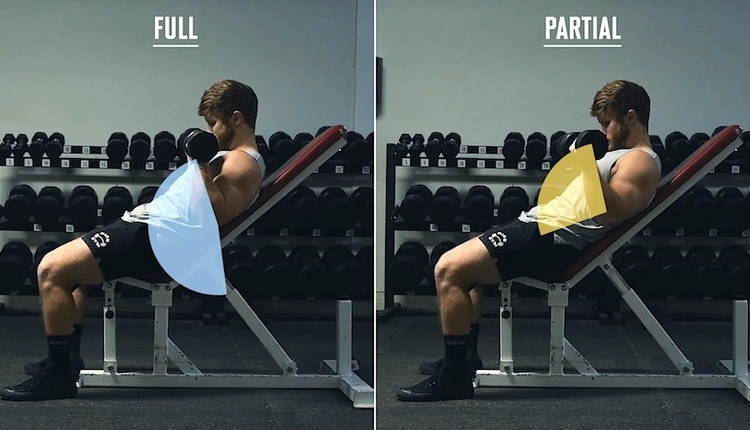At my barbershop recently, I observed an interesting phenomenon. All the barbers there will cut the hair of anybody that walks through the door. Every new customer is an adventure in haircutting for them, and I think that�s what holds them to $12 per haircut and such long hours � it�s the lack of specialization.
Many health club trainers are the same way; they�ll train anyone that walks in the door. For that reason, most of them probably earn much less than my barber. They train whomever they�re assigned, and it could be someone different every hour. They think this allows them to see more clients and add to their incomes, but what it really does is hold them back and leads to their failure.
In medicine, we know that the doctors that earn the most money are the specialists. But specialization in training doesn�t require an additional degree or any other particular differentiating strength, at least not initially.
All It Takes Is a Decision
Once you�ve made this decision about what to make your specialty, it then becomes the focus of all your future work. It guides the knowledge you accumulate and the clients you take on. It becomes the basis of your success image, how you describe your job to others and all of your promotions and marketing. Needless to say, it�s a pretty important decision to make.
It�s also essential for your job satisfaction and well-being. If you don�t specialize, you�ll find your job satisfaction begin to diminish. We all need growth in order to be happy, and you�ll find mastery hard to achieve if you don�t specialize. Just like any professional, your career and personal success are closely aligned. Therefore, it�s not only important for your happiness, but it�s also one of the most crucial things you do for your success as well. You�ll either burn out or find your training practice die out one day, unless you make this choice early on.
My Search for a Specialty
When I first started as a personal trainer at a major health club, I was expected to train anyone that was thrown at me. With just a general understanding of overall fitness, all the other trainers and I were expected to be able to troubleshoot the problems of every potential client. The only mastery the management in those positions was looking to instill in their employees was sales. Indeed, the trainers you�ll find in most health clubs, even the best gyms, are a group of unhappy journeyman trainers moving from one place and one career to another.
After leaving my job as a health club trainer and creating my independent practice, I still continued to generalize. Among my client roster was an 84-year-old woman, a schizophrenic and a 12-year-old boy. Weight-loss, sports performance, body-building � I was expected to know it all; however, this kind of diversity didn�t give me the opportunity to specialize. Since I didn�t consistently do one type of training, my ability to deliver an outstanding product to my clients was limited. At this time in my career, I had a high level of client turnover and couldn�t figure out why. Although I had the thrill of being on my own, I was miserable; I didn�t like what I was doing or who I was training. In fact, I was actually looking to move out of personal training and find other work because I was so unhappy with it!
This also created a lot of confusion from my potential clients. They couldn�t understand or identify what I stood for and what problems I was skilled at solving. They would see me with one type of client one hour and another the next. When any new potential client would see me in action in the gym, training such a diverse range of clientele, they probably could not identify in their mind that I was the right type of trainer for them.
This is a trap I�m sure many independent trainers have fallen into, one they can ill afford. Their success depends on differentiation �developing what�s called these days a mavenship position, where everyone knows what you do and they find you when they need that problem handled. Here are a few more benefits:
� Reduces your marketing costs � Specializing allows you to focus all of your marketing and advertising on a smaller group of potential clients
� Keeps you training the people you want to train � These are people that you enjoy spending time with and bring you satisfaction beyond just the money you earn.
� Increases your level of expertise � You don�t have to spend your time studying information from every possible subject; you can instead concentrate on just one area that is vital long-term in your career.
� Creates mastery � It causes the routine and repetition in activities that eventually leads to a superior quality of your training.
� Competitive advantage � When you�re a specialist, you can slowly accumulate more knowledge in your niche than anyone else. It makes it harder for new trainers to serve your same client base.
Choosing Your Specialty
Besides its importance, choosing your specialty is also one of the most fun things you can do. It�ll force you to find yourself and analyze what you enjoy teaching as well as partaking in the most. In some ways, you can turn your area of highest interest or your hobby into your specialty.
For me, choosing a specialty was built simply around the most obvious set of standards: my own training regimen and goals. I simply looked to attract people that shared my particular workout goals and were willing to train at my level of intensity. This narrowed the list down to people that were already in shape, were younger (so they could handle the intensity) and were looking to achieve outstanding, well-balanced bodies. This specialty limited the total pool from which I could draw clients; for example, I could no longer train children or senior citizens. But at the same time, it created a small group of clients that I was best suited to train. When these clients met me or came in contact with me, they knew right away that I was the right trainer for them.
To put it in words, this is how I would describe my new specialty: helping committed and motivated individuals achieve a higher level of fitness and improved appearance through intense training and a results-focused approach.
This does sound king of broad, but it defined a prerequisite ability level, stated what to expect from my training and described what the client would have to be bringing to the table. If you�re already a trainer, you know that a large number of clients do not meet even the broad criteria I�ve outlined in that specialty.
Although I didn�t use these exact words all of the time, this specialty was apparent in all of my marketing materials and in how I described my services to other people. And I backed it up � from their very first session, my clients knew that they were getting exactly what they signed up for: complete focus on achieving their best possible bodies with the absolute minimum in wasted time and effort.
Inherent in this new self-image were a few new rules:
� I would no longer be training children.
� I would no longer be training senior citizens.
� I would no longer be training individuals with tremendous pre-existing conditions that prevented them from engaging in intense exercise.
� I would not be helping with post-rehab.
� I would not be their to �baby-sit� people that had no intrinsic motivation.
Although this initially forced me turn away several new people that were seeking my help, it was well worth it. Not only did it improve my work enjoyment and make my job much easier, it also helped me to see exactly the type of people that I most wanted to train: young, fit and healthy people. It might seem like I took the lazy route, choosing what I did most easily as my specialty and the people I wanted to be around as my clients. But that�s just the type of synergy that this profession allows us, so it�s to your benefit to take advantage of it.
In instituting this system, I did come across an interesting dilemma. Through my exclusive training agreement with a health club I partnered with, I had many people asking for training that didn�t fit at all into my niche, but turning away all of these people wouldn�t be fair to the health club�s owner, who was looking for the best possible service for all of his members. Rather than compromise my standards, I hired two more personal trainers in order to handle these special populations for me. They trained the children, obese and complete novices and allowed me to focus on my specialty. This setup allowed me to offer my training services to a wide range of people without creating a confusing image in the mind of potential clients.
Kaiser Serajuddin is the owner and head trainer of GoHard Fitness Inc. in












